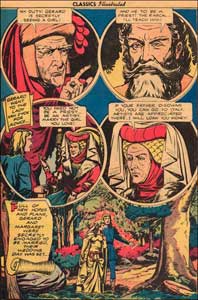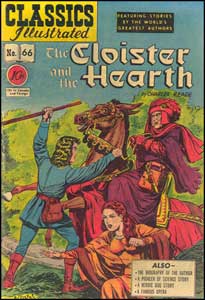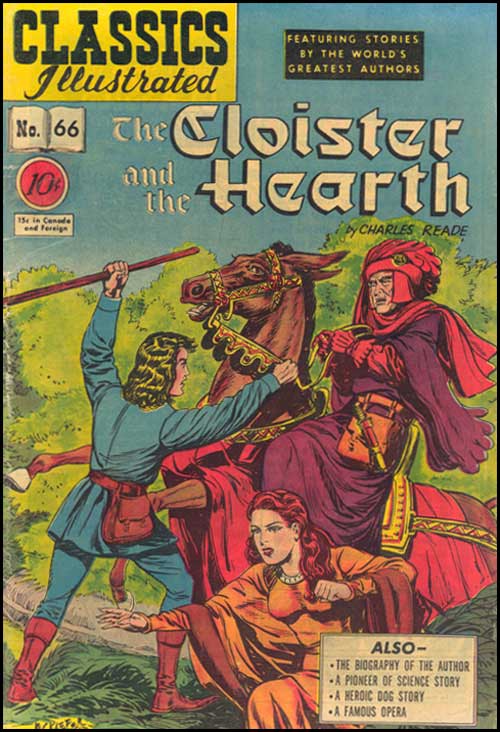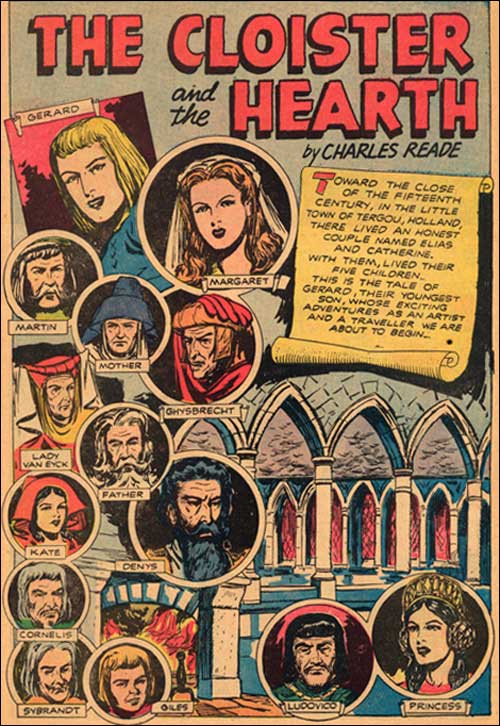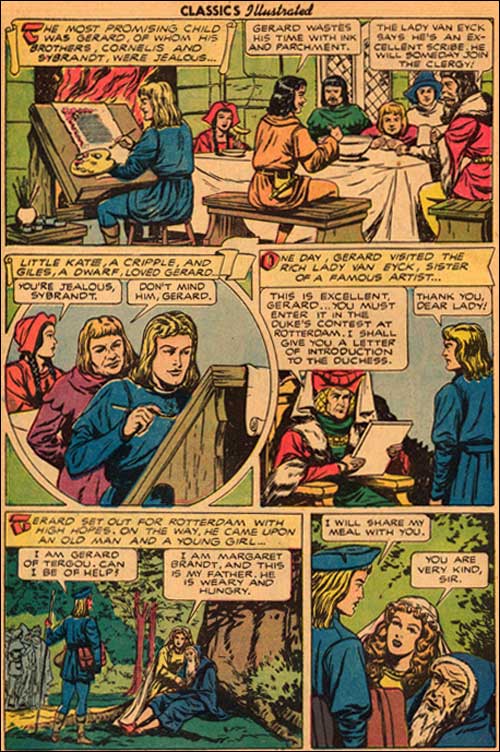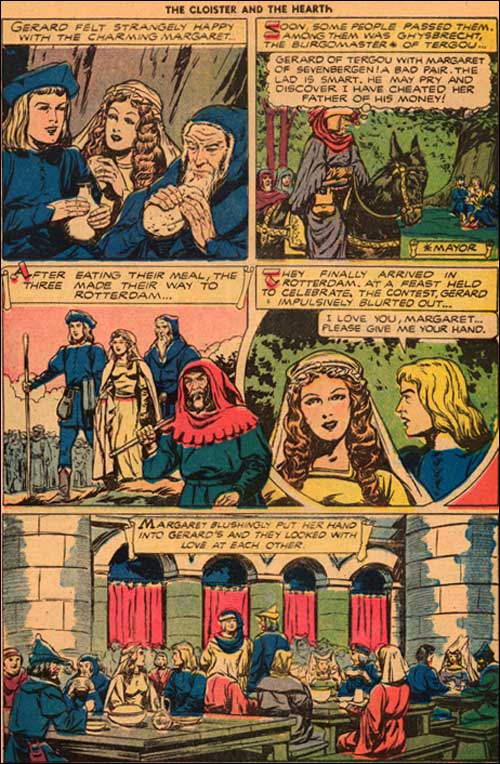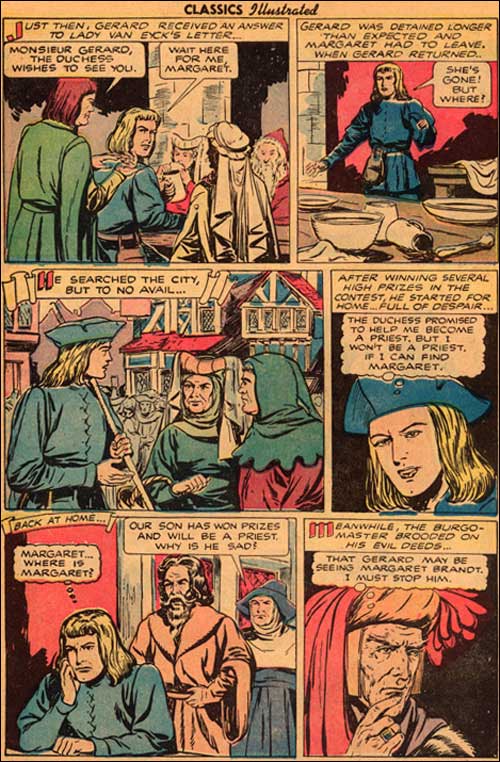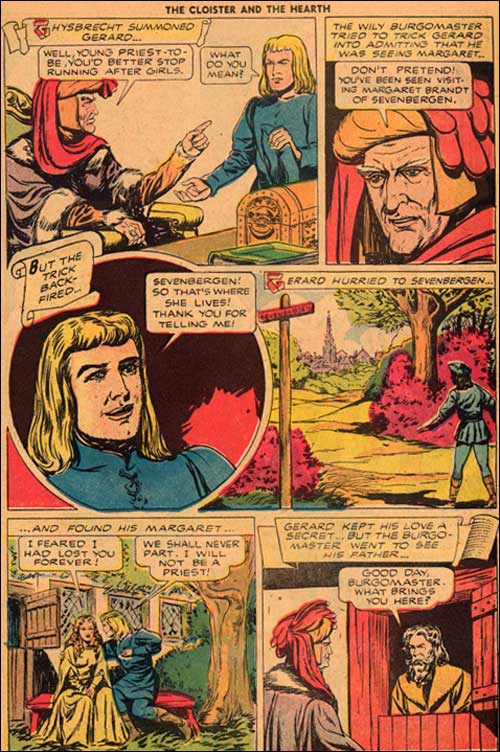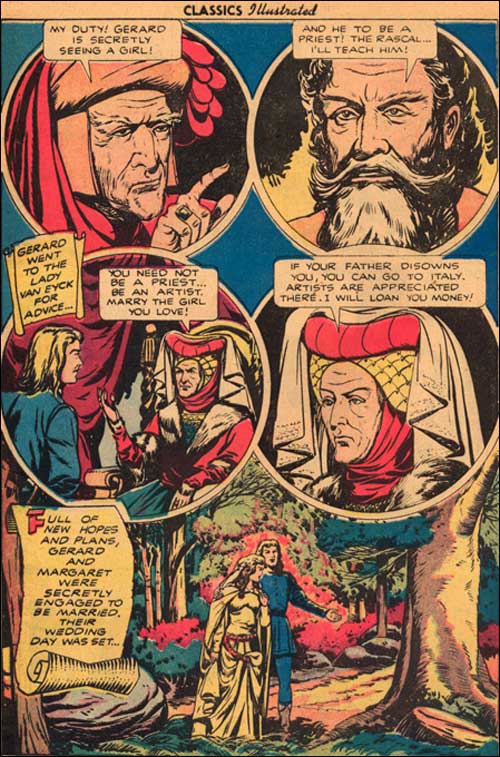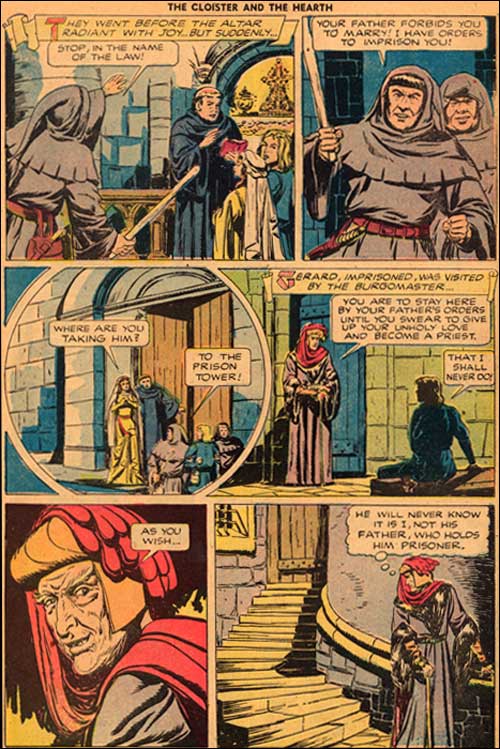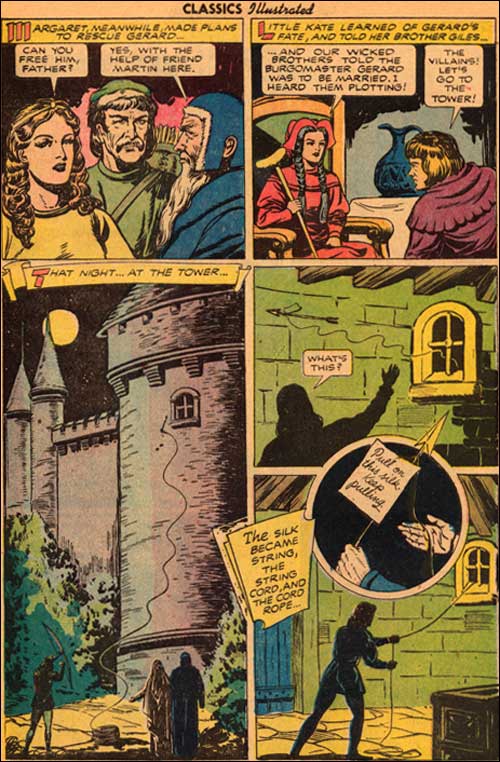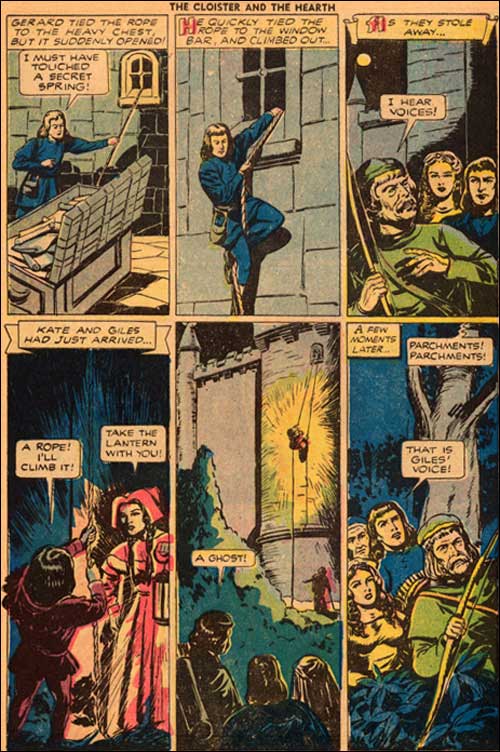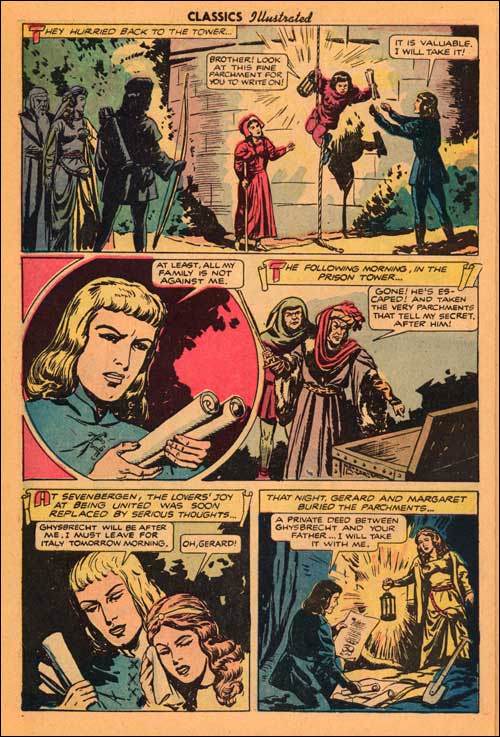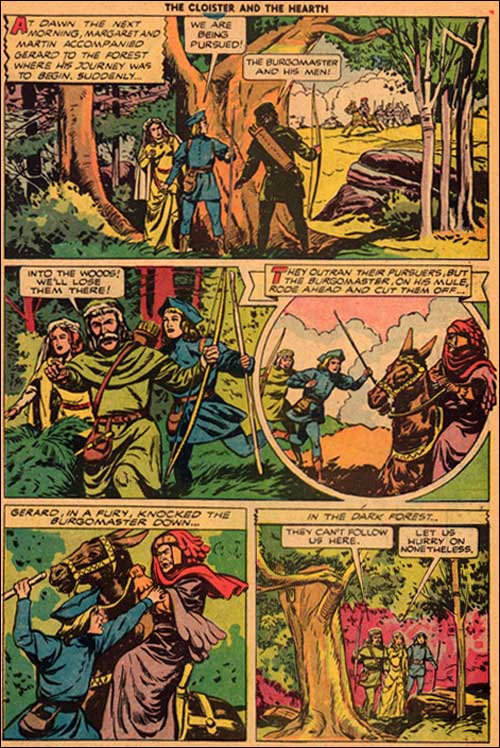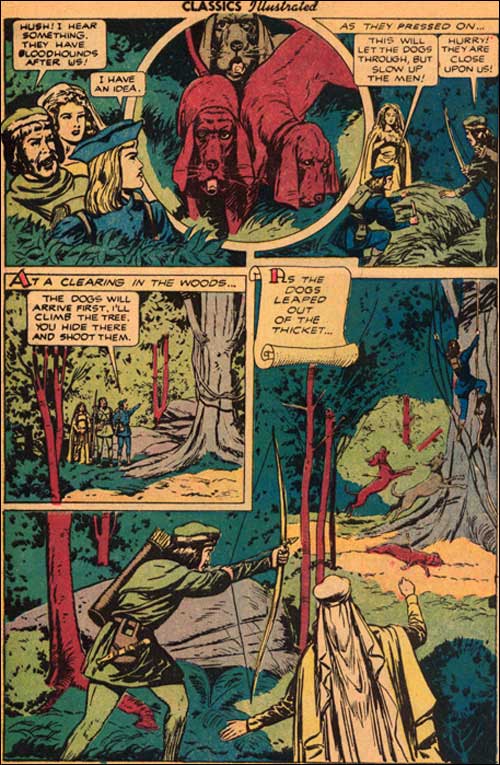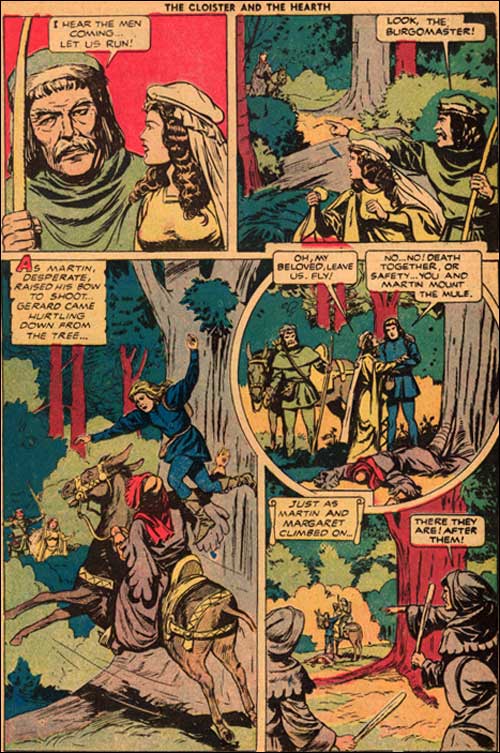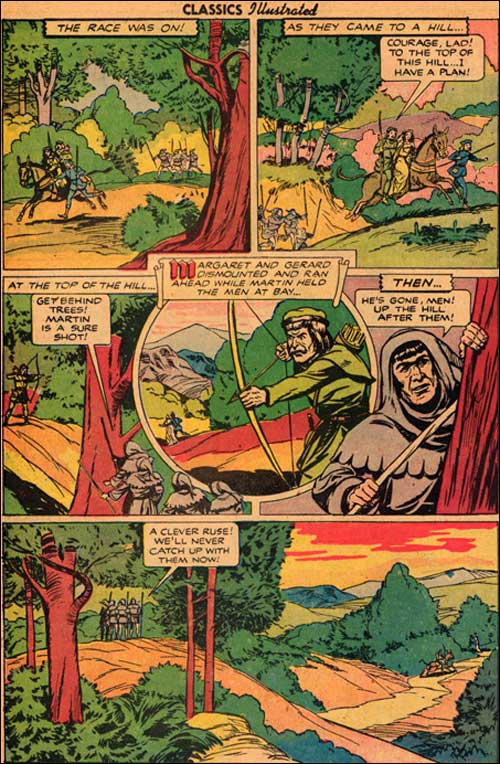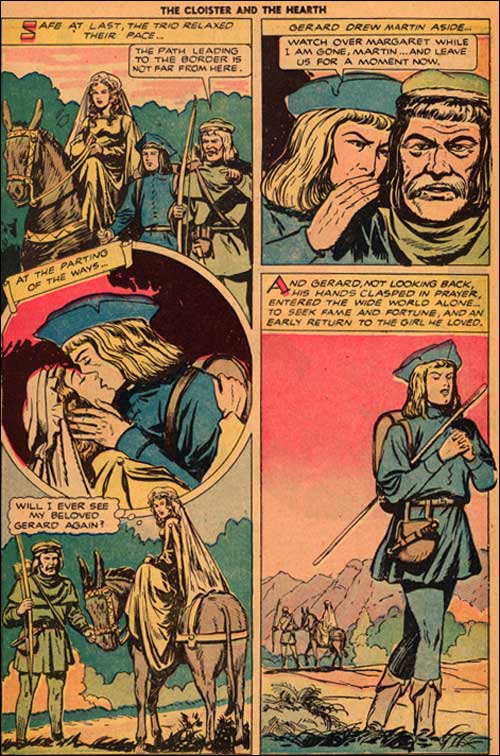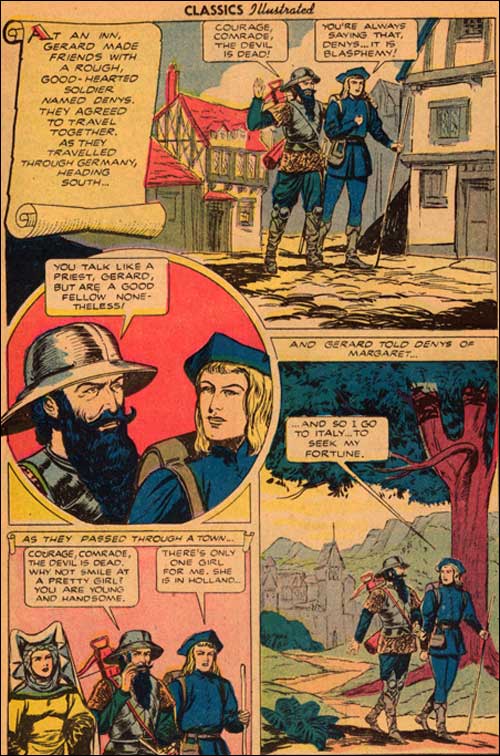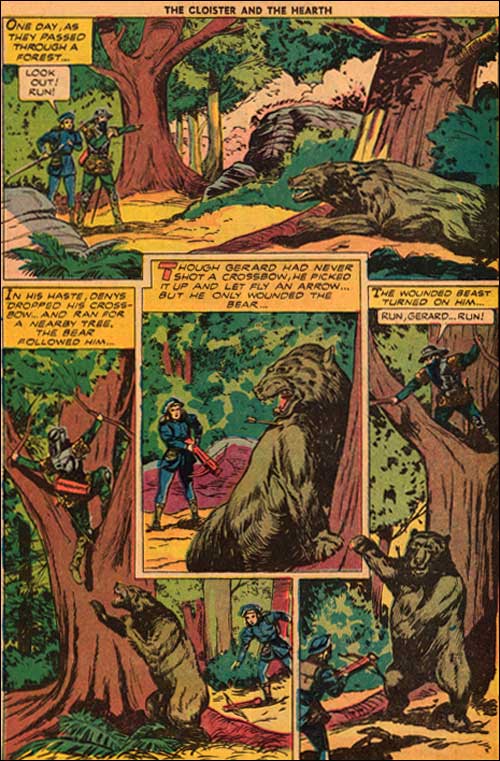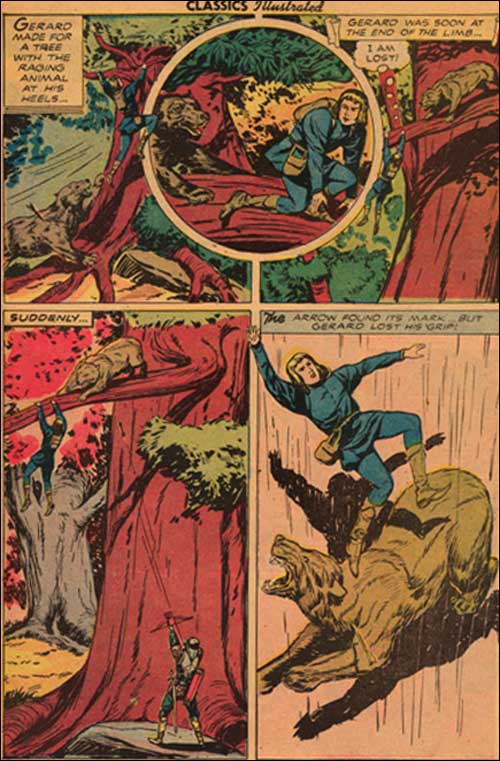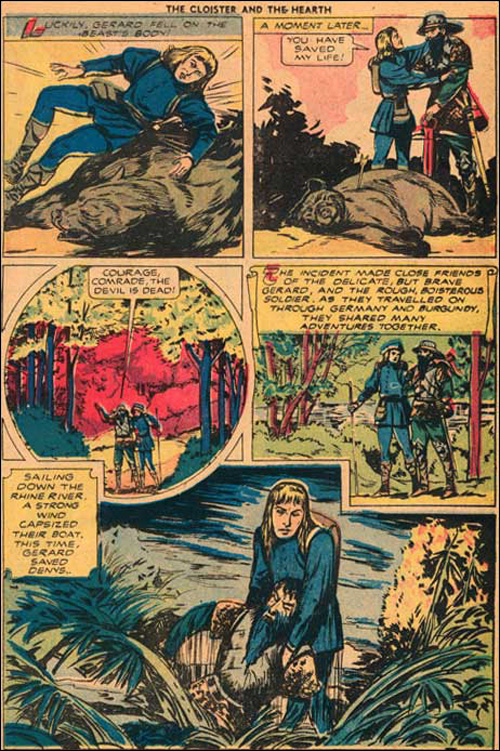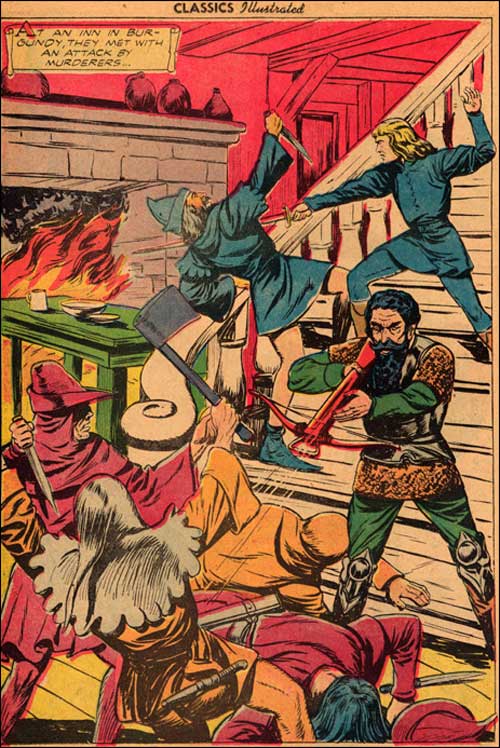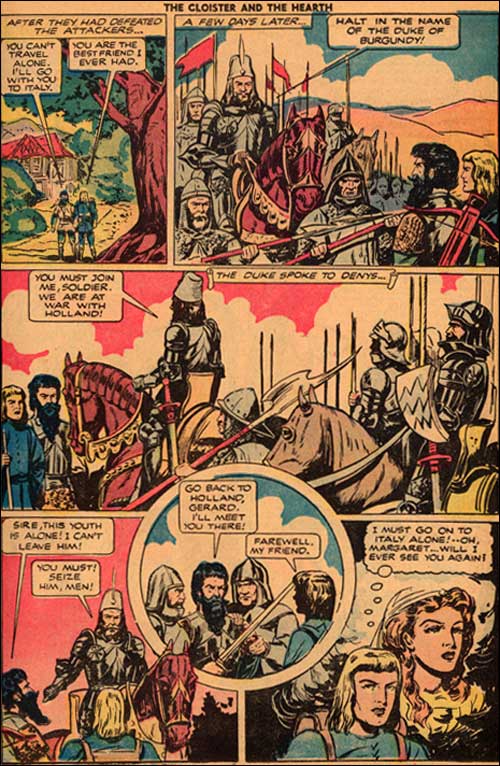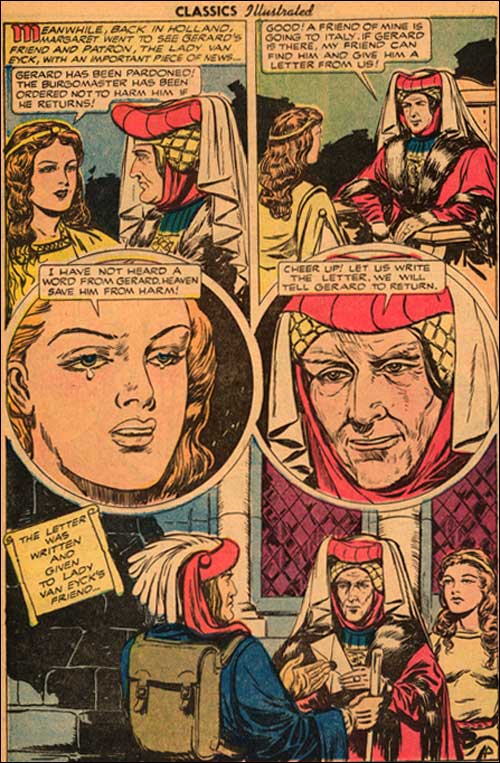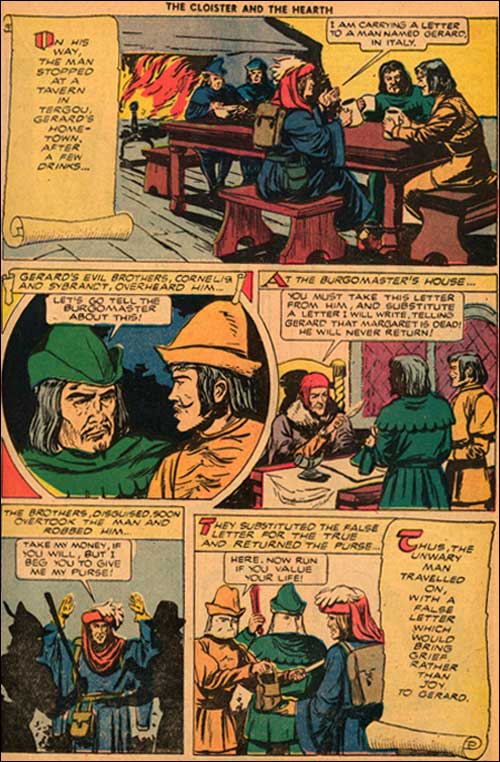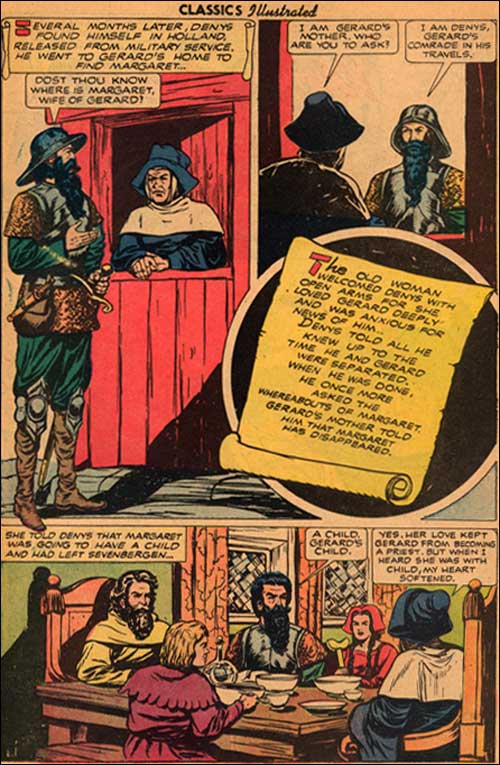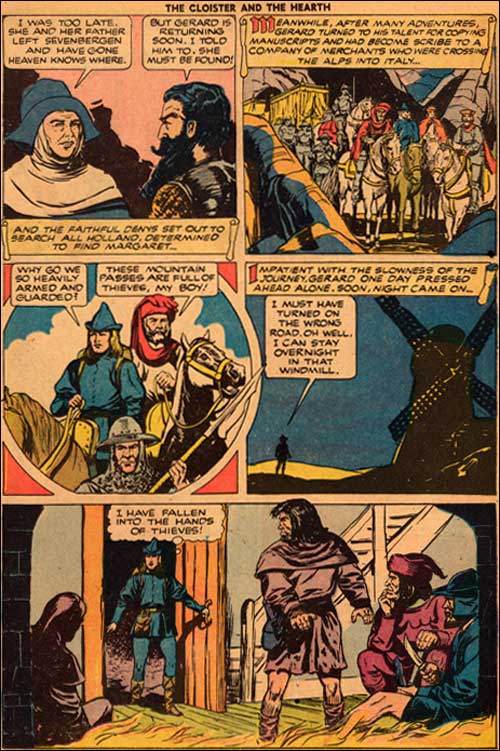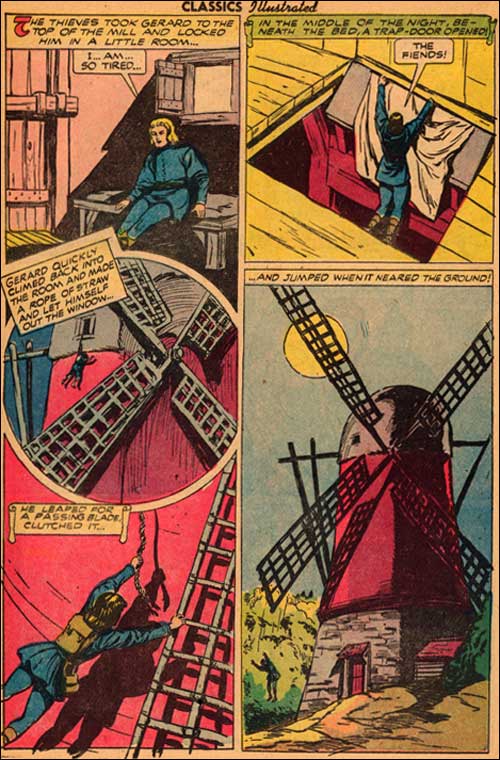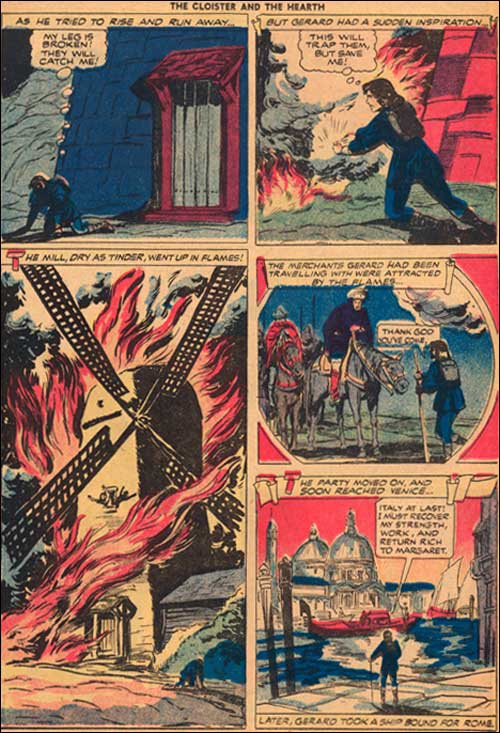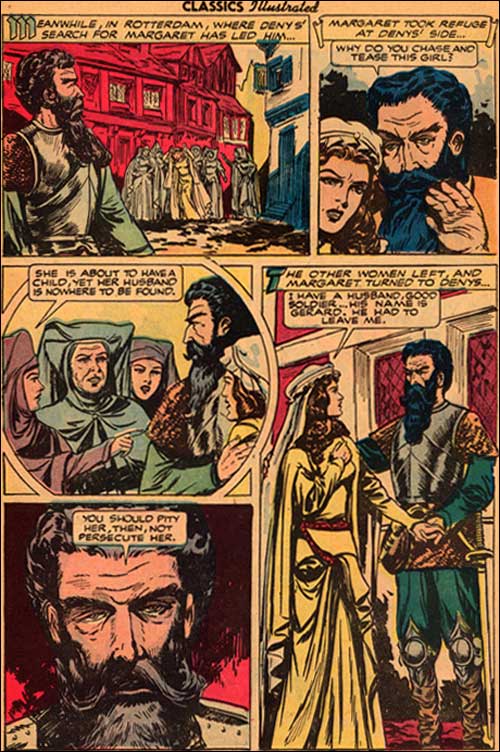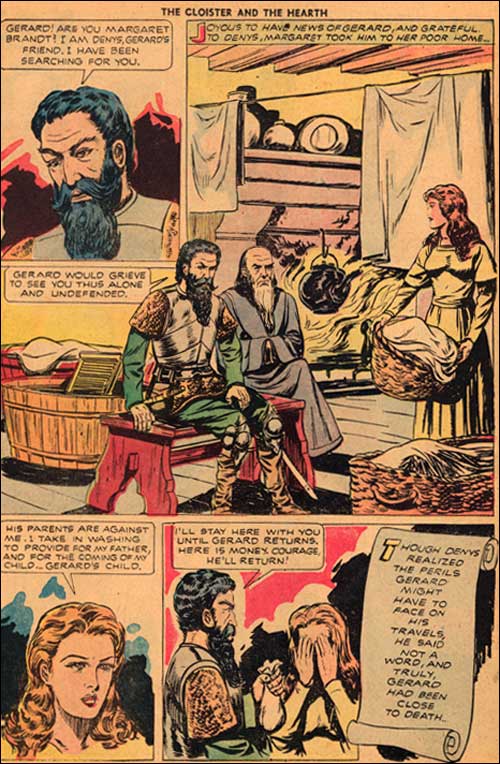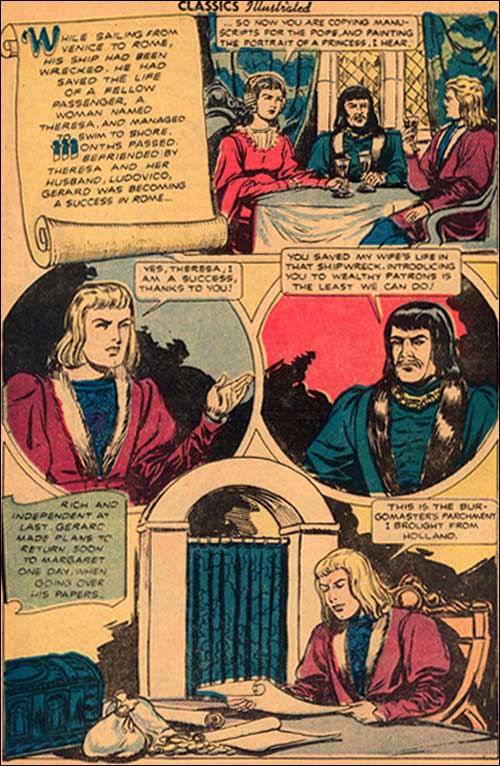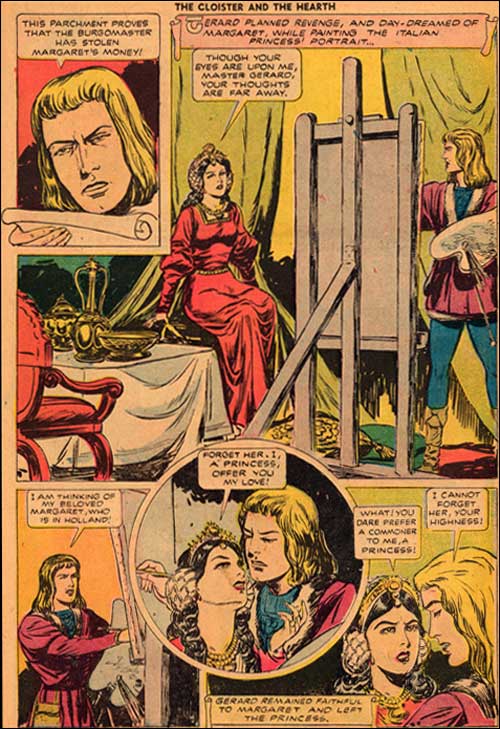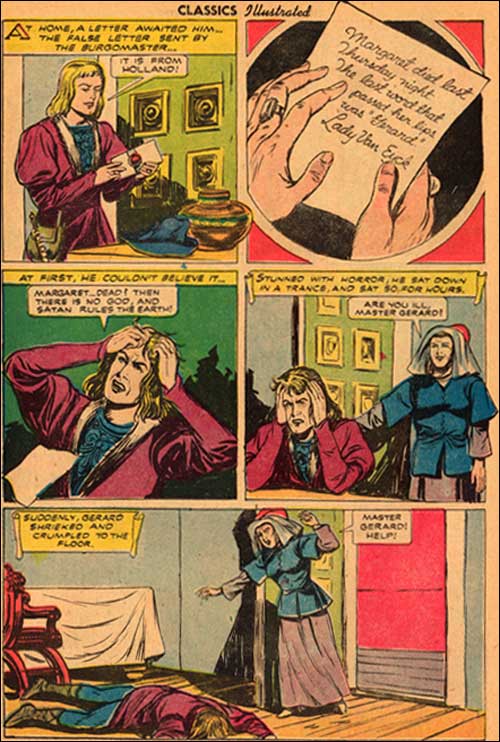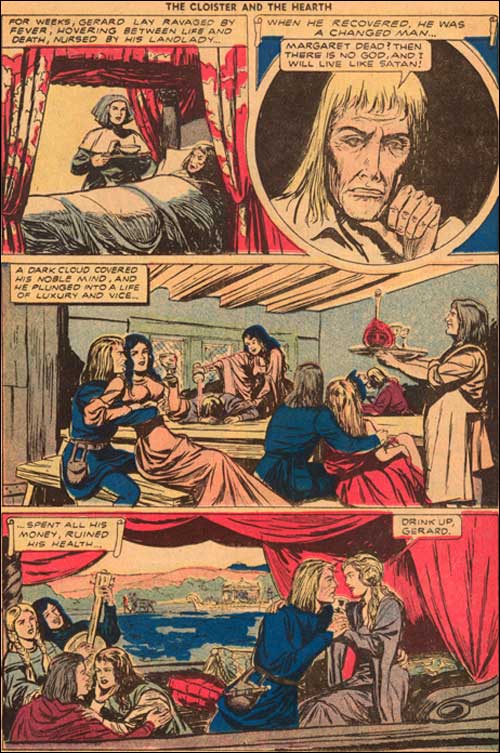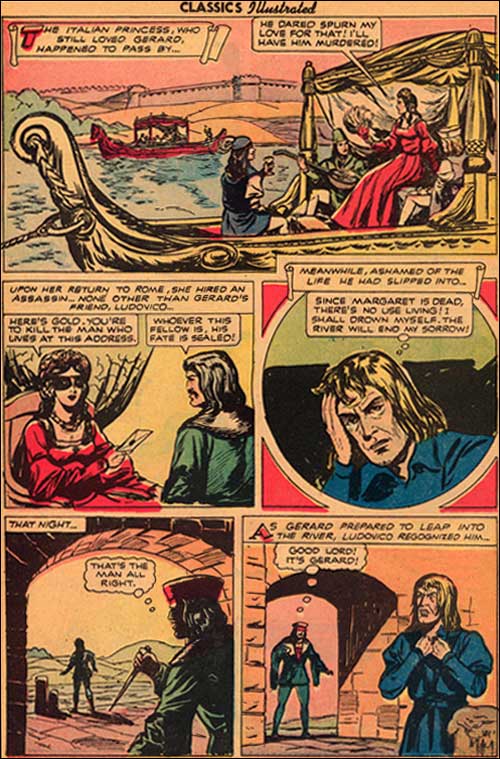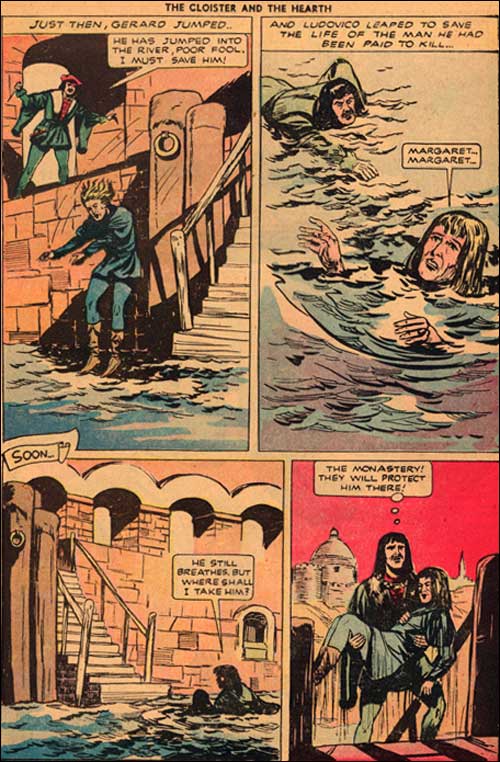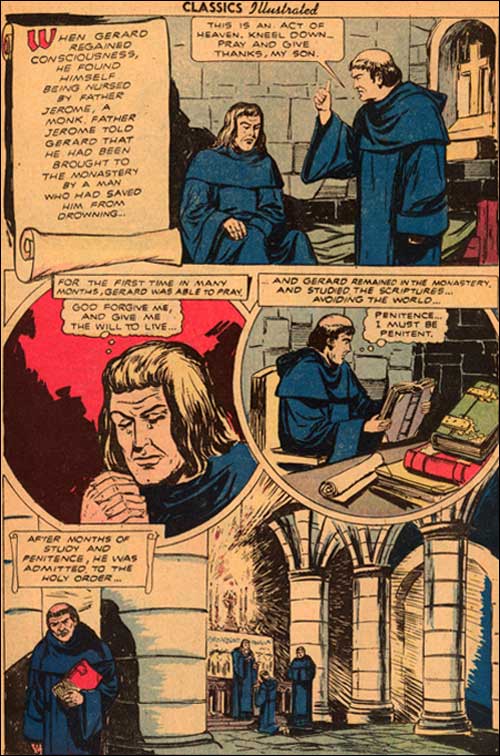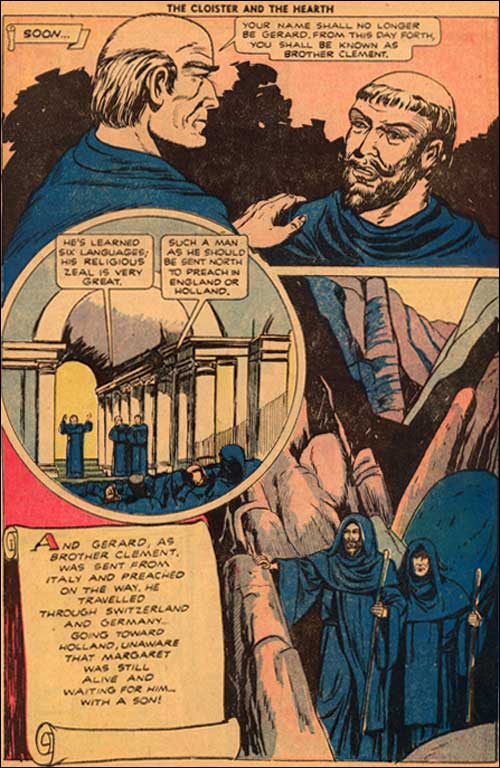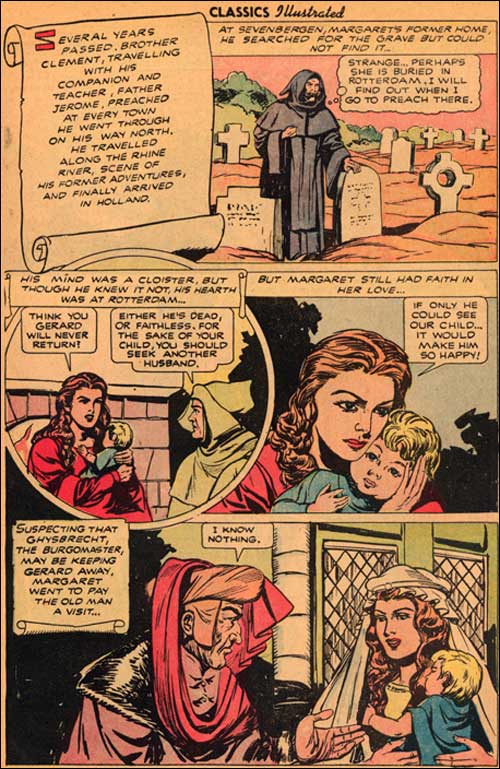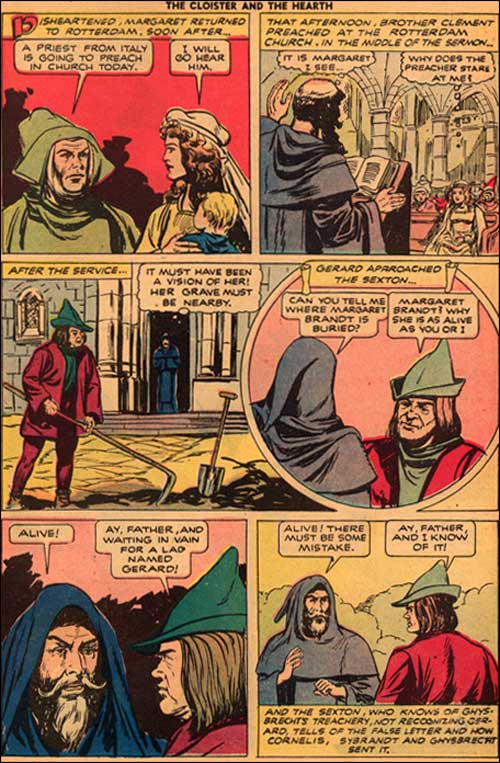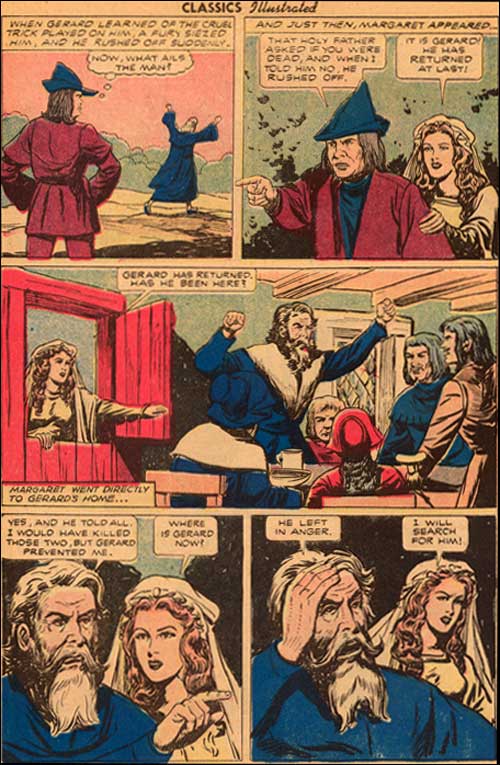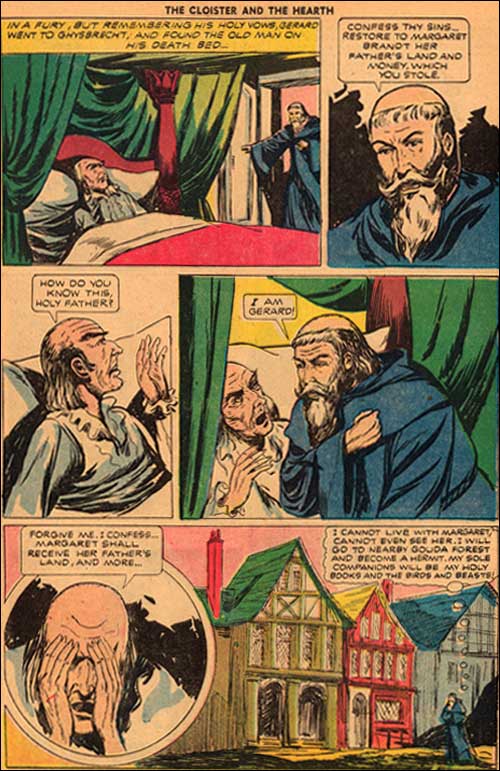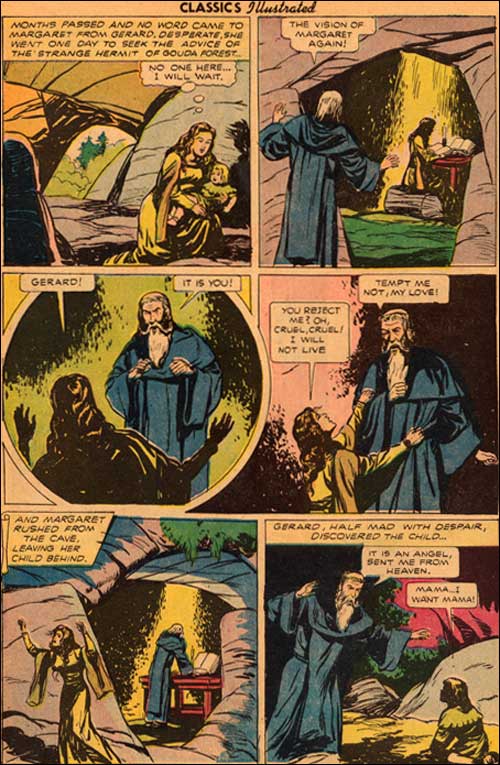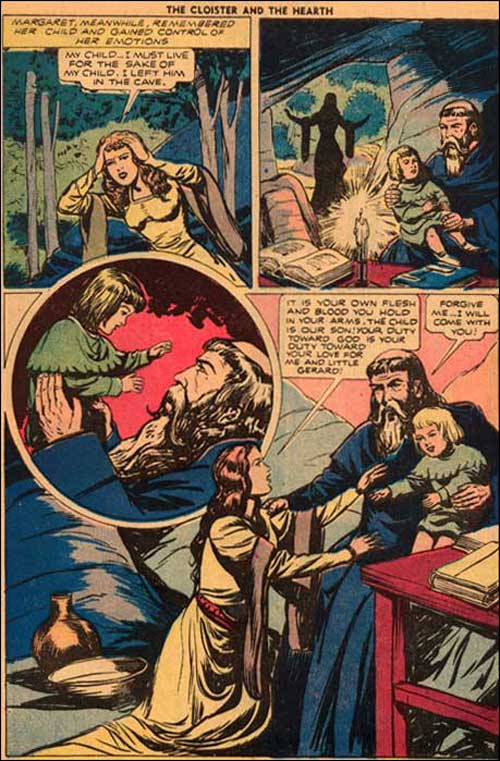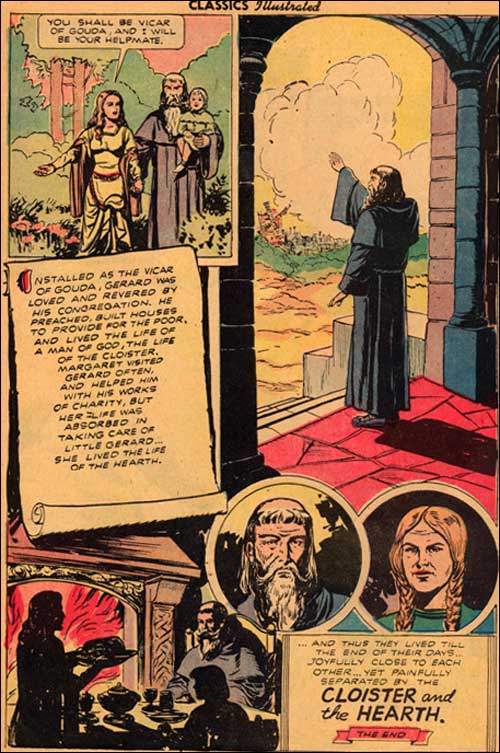The Cloister and the Hearth
by
The enchanting true story of the parents of Erasmus of Rotterdam.
World's greatest love story.
|
List of titles offered by Classics Illustrated. |
The Cloister and the Hearth by Charles Reade. |
At the turn of the century, a Russian immigrant named Albert L. Kanter arrived in the land of the free. He was a lover of learning and literature, was familiar with all the great classics of world literature, and wanted his children to share his enthusiasm for reading.
However, his children did not seem to share his passion for reading the great Classics. He thought that there might be opportunity in the newly developing comic book industry to present the Classics in comic book fashion and introduce the world's great literature to a wider audience.
In 1941, Mr. Kanter introduced the first of the Classics series with the publication of the Three Musketeers by French author Alexander Dumas.
The series was another great U.S. success story. All the great classics of literature were eventually produced. Here is a list of some of the titles:
List of some of the titles in the Classics Illustrated series
| Author |
Title |
| Alexandre Dumas | The Three Musketeers |
| Sir Walter Scott | Ivanhoe |
| Alexandre Dumas | The Count of Monte Cristo |
| Herman Melville | Moby Dick |
| Charles Dickens | A Tale of Two Cities |
| Victor Hugo | Les Miserables |
| Miguel De Cervantes | Don Quixote |
| Jules Verne | Twenty Thousand Leagues Under the Sea |
| William Shakespeare | Hamlet |
| William Shakespeare | Julius Caesar |
| Harriet Beecher Stowe | Uncle Tom's Cabin |
| Emily Bronte | Wuthering Heights |
| Jane Porter | The Scottish Chiefs |
| Charles Reade | The Cloister and the Hearth |
The entire series was a remarkable publishing success story and was translated into many languages. Kids loved them; parents loved them, and they were a fantastic way of introducing young readers to the great Classics of world literature.
However, with the last two titles Rome was highly displeased....Jane Porter wrote a stirring saga of the fight for Scottish Independence led by Sir William Wallace (Braveheart), and Charles Reade wrote an historical novel on the love story of the parents of Erasmus of Rotterdam.
The series began to experience trouble with the Rome controlled Postal Service, and the publishers lost their 2nd class postage. In 1962, they were bought out by a Roman Catholic publisher named Twin Circle and that led to the demise of the great Classics Illustrated Series. Today,U.S. kids do not have problems with reading the great Classics . . . they have problems reading at all!!

Erasmus of Rotterdam (1466-1536).
Erasmus of Rotterdam was the intellectual giant of the Renaissance in Europe. He was the most learned man of his age. Every university in Europe vied for the honor of having him as a member of their faculty. He was also the editor of the Greek New Testament that Saint Martin Luther used to launch the blessed Reformation. It was said that "Erasmus laid the egg that Luther hatched." Erasmus had nothing but contempt for the corrupt clergy. His father and mother, Gerard and Margaret Brandt, are the subjects of The Cloister and the Hearth.
Margaret died of the plague and was forgotten, while her son went on to fame as a great author and the most learned man in 16th century Europe.
|
Front Cover |
Page 1 |
Page 2 |
Page 3 |
|
Page 4 |
Page 5 |
Page 6 |
Page 7 |
|
Page 8 |
Page 9 |
Page 10 |
Page 11 |
|
Page 12 |
Page 13 |
Page 14 |
Page 15 |
|
Page 16 |
Page 17 |
Page 18 |
Page 19 |
|
Page 20 |
Page 21 |
Page 22 |
Page 23 |
|
Page 24 |
Page 25 |
Page 26 |
Page27 |
|
Page 28 |
Page 29 |
Page 30 |
Page 31 |
|
Page 32 |
Page 33 |
Page34 |
Page 35 |
|
Page 36 |
Page 37 |
Page 38 |
Page 39 |
|
Page 40 |
Page 41 |
Page 42 |
Page 43 |
|
|
|||

